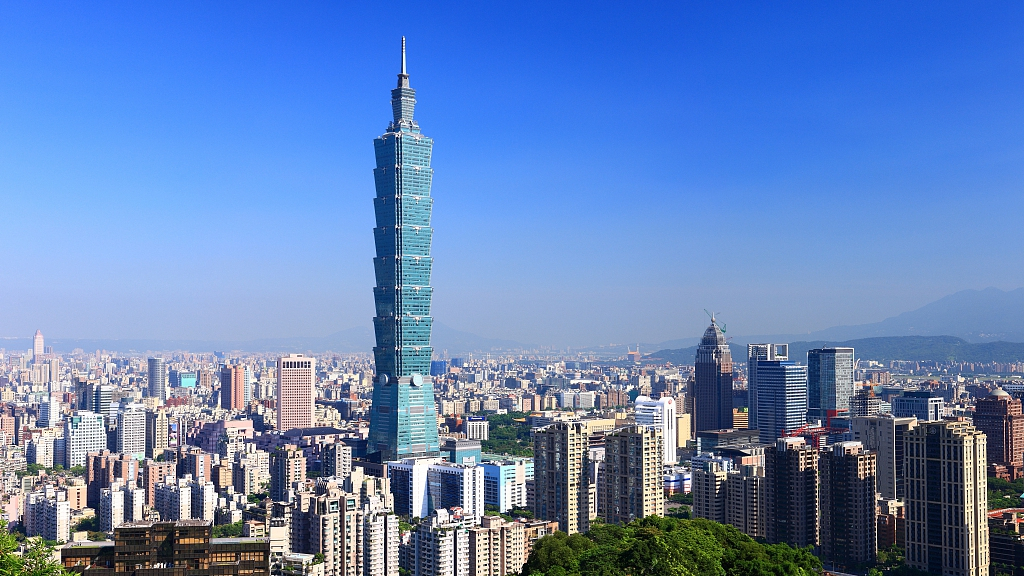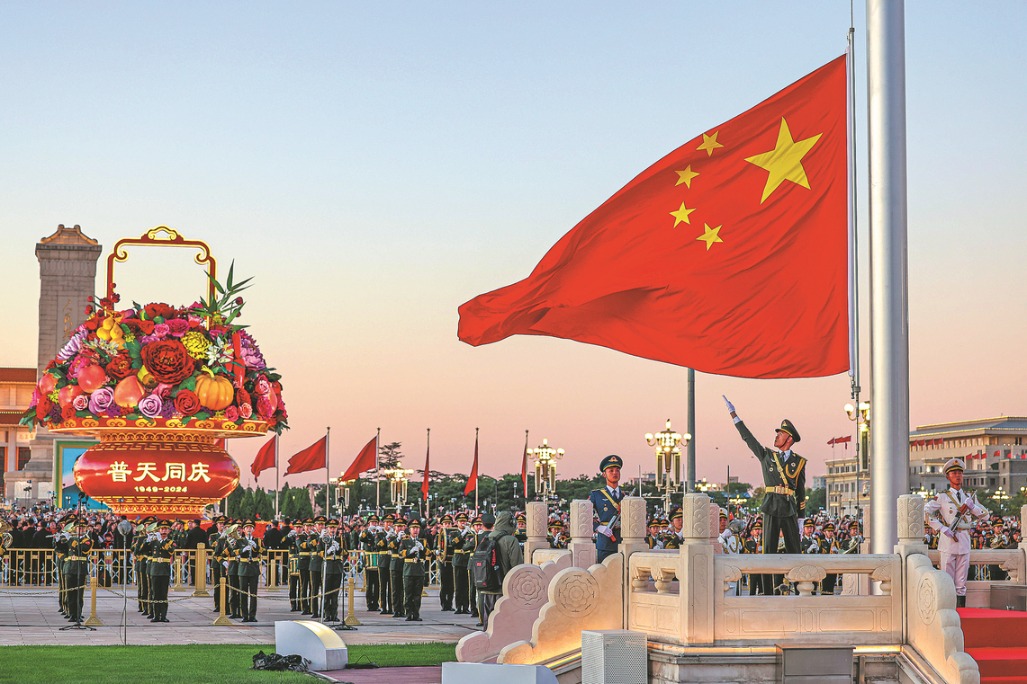Washington must stay true to one-China commitment


In recent years, conflicts, disputes and other regional hotspot issues have caused uncertainty about the world's future. In all this, the Taiwan question stands out as one of the most prominent regional flashpoints, and it's a focal point in Sino-US relations.
The collusion between separatist forces in Taiwan and certain US politicians and organizations have repeatedly escalated tensions in the Taiwan Strait. If not effectively addressed, the situation could spiral out of control, leading to disastrous consequences not only for the region but also for the entire world.
The Taiwan question is a core interest of Beijing. Defending this core interest involves maintaining peace and stability across the Strait, opposing and eradicating all forms of "Taiwan independence" activities and external interference in the Taiwan question — in short, not allowing any force to separate Taiwan from the motherland.
When it comes to matters of sovereignty and territorial integrity, the Chinese people and government have no room for compromise. No one should expect Beijing to accept the separation of Taiwan from the motherland.
This is the 21st century, not the 19th or 20th century, a century when China has become an economic powerhouse and a big military power. So China will not allow its territory to be divided or its sovereignty to be violated.
The Taiwan question has always been the most sensitive subject in Sino-US relations, affecting the nature and direction of this crucial bilateral relationship. Chinese Foreign Minister Wang Yi, during his meeting with US Secretary of State Antony Blinken in Washington on Oct 26-27, emphasized that the current global situation is complex, and Sino-US relations have reached a critical crossroad.
In such a situation, the handling of the Taiwan question is a key indicator of in which way Sino-US relations will move. Ably managing the Taiwan question will contribute to the positive development of bilateral relations, benefiting China and the United States, as well as the Asia-Pacific region, and even the entire world.
On the other hand, the mishandling of the Taiwan question could significantly increase the risk of a direct confrontation between Beijing and Washington, leading to instability in the Asia-Pacific and the world beyond. Recognizing the critical impact of the Taiwan question, Wang, during his meeting with US National Security Advisor Jake Sullivan in Washington, said that the biggest threat to peace and stability across the Strait is "Taiwan independence", and the most significant challenge to Sino-US relations, too, is "Taiwan independence", which should be resolutely opposed.
Wang also made it clear during his meeting with US President Joe Biden that the one-China principle and the three Sino-US joint communiques are the pillars of bilateral ties and, therefore, should be firmly upheld. The principle and communiques highlight the political commitments of the US. Adhering to the principle and abiding by the three communiques will contribute to the proper handling of the Taiwan question and put Sino-US relations back on a healthy development track.
Since the Taiwan question is critical to the overall stability and positive development of Sino-US relations, it should be effectively managed based on the existing Sino-US political foundation. In recent years, the Taiwan Strait has come close to witnessing a conflict, often due to the instigation of certain US political forces which use the Taiwan question to fulfill their own narrow political goals, sending the wrong signals to "Taiwan independence" forces on the island.
The misguided signals from the US have emboldened the Taiwan secessionists. Combined with their increasing collusion with some US politicians, the misguided signals are the root cause of the complex and challenging situation across the Strait. It is the obligation of the US therefore to maintain peace and stability across the Strait. More important, the US should unequivocally oppose "Taiwan independence", in order to improve Sino-US relations and maintain peace and stability across the Strait.
The results of the upcoming elections in Taiwan early next year will be pivotal moments that could affect the political landscape of Taiwan, the situation across the Strait, and cross-Strait as well as Sino-US relations. They will also serve as a test of the US' commitment to the one-China principle.
The Taiwan question is critical to achieving the rejuvenation of the Chinese nation. If the US fulfills its political commitments, upholds the one-China principle, opposes "Taiwan independence", and refrains from sending misguided signals to the "Taiwan independence" forces, the separatist forces on the island will think twice before making any rash moves. This in turn will pave the way for peace and stability across the Strait and the healthy development of cross-Strait relations. It will also contribute to the stability and sustainability of Sino-US relations and help prevent misunderstandings.
The US adhering to the one-China principle is not only in the interest of both China and the US and their peoples but also in line with the international community's expectations.
The author is deputy director of the Institute of Taiwan Studies, Beijing Union University.
The views don't necessarily represent those of China Daily.
































